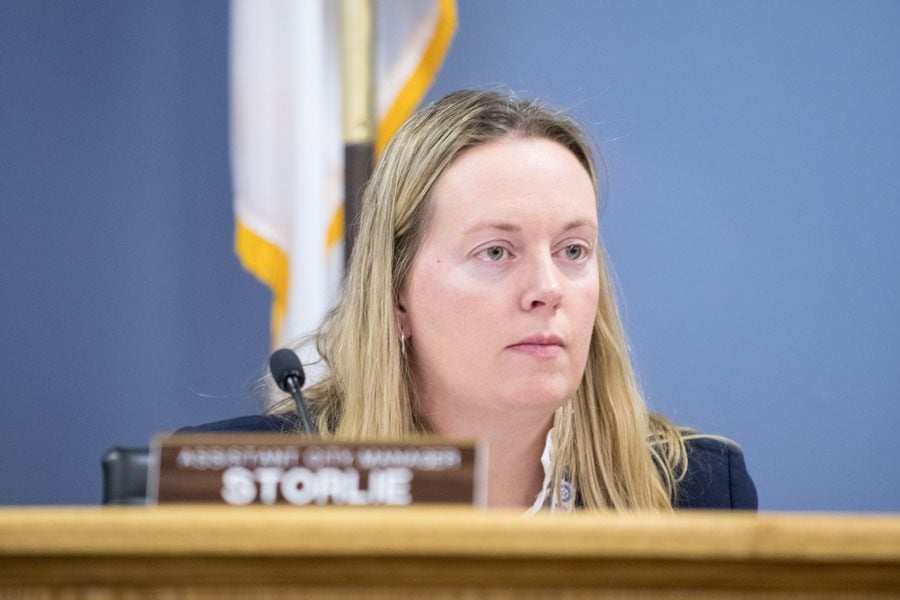Council weighs reserve funding resolution residents fear could raise property taxes
Daily file photo by Colin Boyle
City manager Erika Storlie. City Council voted Monday to commit to increasing the reserve fund to 16.66 percent of expenses.
January 12, 2021
Aldermen debated a resolution that would allocate $1.9 million of reserve funding into the general fund balance annually through 2025 at Monday’s City Council meeting, a measure some say could lead to annual increases in property taxes.
“There is no requirement in this resolution for the city to reduce expenditures (and) to live within its expected level of revenue,” resident Jamie Robin-Collier said in public comment. “Make no mistake, a vote for this resolution as it now stands is a vote to increase property taxes, with nothing to show for.”
The resolution would not be binding, but would serve as a budgeting target for City Council.
City manager Erika Storlie said boosting fund reserves could potentially improve the city’s fiscal health ratings. She said similar resolutions have contributed to Evanston’s high credit ratings in the past. These ratings, Storlie said, influence the rate at which the city must pay to borrow money for capital improvements.
But some residents said the goal would rely too heavily on increasing property taxes, rather than focusing on city revenues and expenditures.
“It was barely over a month ago that a majority of the City Council fought for lowering the property tax levy as best as they knew how,” resident Sean Peck-Collier said. “And I think it is important to name that the priority behind that fight was to help our Evanston neighbors survive the fallout from the pandemic, which is still ongoing.”
Ald. Ann Rainey (8th) strongly opposed the resolution, and said she doubted whether the plan was feasible given the Council’s inconsistent track record of meeting fiscal goals in years past.
In 2019, City Council pledged to contribute $1.5 million each year to the fund until the reserve reached 16.6 percent of operating expenses, enough to cover payments for two months. However, Rainey said the city has only met such a goal once in her recent memory, in 2014.
“Why do we keep piling on these unkept promises?” Rainey said. “We can’t pass this, because we can’t make this promise, just like we shouldn’t have made this promise in 2019.”
Ald. Cicely Fleming (9th) and Ald. Eleanor Revelle (7th) also opposed the resolution.
Fleming said she felt the resolution might be too optimistic given the fluid nature of the COVID-19 pandemic, and Council should instead focus on cutting spending and generating revenue.
“We see that already we’re having a hard time getting the vaccine rolled out, so there’s a lot of things that still just don’t assure me that this year is going to be a great year,” Fleming said. “I’d much rather us make a plan … that isn’t so aggressive to our citizens who are already struggling.”
But aldermen like Ald. Donald Wilson (4th) and Ald. Melissa Wynne (3rd) supported the measure, saying it would help ensure the city is adequately prepared for financial hardship in the future.
Wilson also said the upcoming 2021 City Council elections could shift the course of the resolution.
“If there are different people elected (to next year’s Council), and they want to do something differently, they can do a different resolution,” Wilson said. “In order to be as as transparent as possible, we should set forth what the intentions are, and we should be working towards these goals.”
Email: [email protected]
Twitter: @jasonbeeferman
Related Stories:
— Approved 2021 budget set to raise property taxes by 1 percent
— Looking to cut costs for 2021 budget, Aldermen consider charging Northwestern for fire services
— COVID-19 hangs over budget discussions as city prepares to finalize plans for 2021


